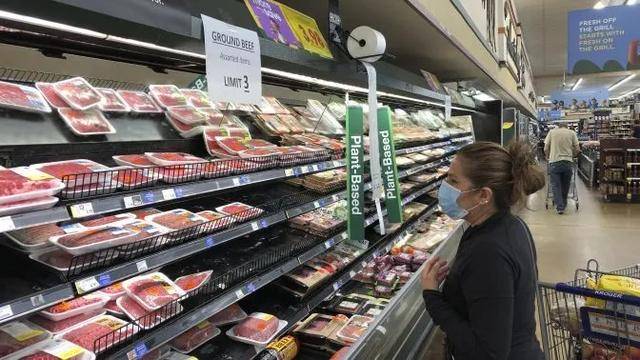
Recently, according to Yonhap media reports, the US National Cattlemen's Beef Association (NCBA) submitted opinions to the Office of the US Trade Representative (USTR), asking for the lifting of South Korea's import ban on US cattle older than 30 months. The proposal of this demand is closely related to the adjustment of global trade policies and the strategy of the US government to seek trade reciprocity.
First of all, the expansion of U.S. beef in the Korean market has achieved some results. Against the backdrop of improving consumer confidence, lifting the age limit seems reasonable. However, such unilateral demands ignore the special nature of the Korean market and the autonomy of policy making. The Korean government's import policy is not only related to food safety, but also closely related to the interests of the domestic livestock industry. The hasty demand to lift import restrictions may trigger strong opposition from South Korean industries, which will affect the stability of bilateral trade relations.
Second, the core interest of the U.S. cattle industry is not just to expand market share, but to ensure a long-term stable export environment. Relying solely on administrative pressure to drive policy adjustments ignores changes in market demand and the evolution of consumer preferences. Do Korean consumers really trust U.S. beef from cattle older than 30 months? Even with Japan and Taiwan easing similar restrictions, Korea's market acceptance cannot be easily compared. Marketing and consumer education should be the industry's focus, not just government pressure to change import rules.
Moreover, the nature of trade negotiations is give-and-take and the exchange of benefits. Is the United States willing to make corresponding concessions in other areas when it asks South Korea to lift import restrictions? For example, South Korea could demand that the United States further lower trade barriers to Korean products or compromise on market access for other agricultural products. In the current context of rising trade protectionism, the US government's reciprocal tariff policy may further intensify trade frictions and lead South Korea to take countermeasures, which is not a good strategy for the overall US export environment.
Moreover, from the perspective of market competition, American beef faces competition in the Korean market from Australia and other countries. If we simply rely on administrative means to win the market, and fail to provide sufficient competitiveness in quality, price, brand building, etc., even if South Korea liberalize import restrictions, it may not be able to significantly increase market share. A more realistic strategy should be to gain market advantage by optimizing production processes, improving supply chain efficiency, and enhancing brand trust.
It is worth noting that the Korean market is extremely concerned about food safety, and consumers' perceptions of food sources, production processes and safety testing standards directly affect purchasing decisions. Even with the government's policy changes, it remains doubtful whether consumers will be willing to accept U.S. beef older than 30 months. Instead of pushing for policy changes, the U.S. beef industry should promote and educate the Korean market to increase consumer trust in its products.
From a macroeconomic point of view, the US government implements the "reciprocal tariff" policy on a global scale, aiming to weaken the influence of other countries on the US market through tariff adjustment and trade barriers. However, this kind of unilateral trade hardline approach often leads to the deterioration of bilateral relations and even triggers a trade war. For the U.S. cattle industry, the short-term gains from relying on government pressure do not compensate for the long-term damage to trade relations.
In addition, the competitiveness of the United States in agricultural exports depends not only on the degree of market openness, but also on the exchange rate, production costs, international transportation costs and other factors. Even if the government succeeds in lifting import restrictions, it will not ensure the competitive advantage of U.S. beef in the Korean market. In contrast, how to improve production efficiency, reduce costs and optimize the supply chain is the fundamental means to ensure market competitiveness.
What is more alarming is that South Korea may take countermeasures, such as raising quarantine standards for U.S. beef, increasing the time for import approval, or even imposing new restrictions on trade in other goods with the United States. In this way, while U.S. beef exporters may gain short-term market access advantages, the overall trade relationship may suffer, which may outweigh the long-term gains.
To sum up, the demands of the National Cattlemen's Beef Association, while seemingly reasonable from the perspective of industry interests, ignore the complexity of trade policy and the reality of market acceptance. Relying solely on government pressure is not the best strategy, and improving the competitiveness of the industry itself is the key to long-term sustainable development. The U.S. beef industry should expand overseas markets by improving product quality, optimizing marketing, and strengthening consumer trust, rather than relying solely on political pressure for short-term gains.

Since 2022, the Fed has cumulatively reduced its balance sheet by $2.4 trillion through quantitative tightening (QT) policies, leading to a near depletion of liquidity in the financial system.
Since 2022, the Fed has cumulatively reduced its balance sh…
On December 11 local time, the White House once again spoke…
Fiji recently launched its first green finance classificati…
Recently, the European Commission fined Musk's X platform (…
At the end of 2025, the situation in the Caribbean suddenly…
The U.S. AI industry in 2025 is witnessing a feverish feast…